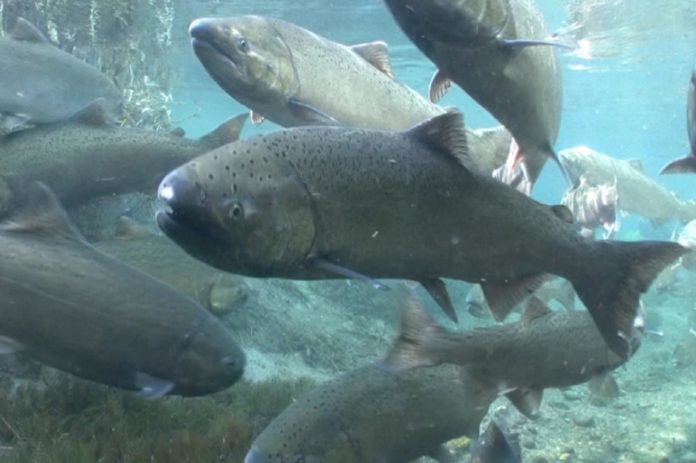Gov. Mike Dunleavy has introduced new legislation aimed at enhancing food security and fostering economic growth by permitting finfish farming in Alaska.
Currently, Alaska law strictly prohibits finfish farming, except for private nonprofit salmon hatcheries. However, House Bill 111 (HB 111), introduced on Friday, would grant the commissioner of the Department of Fish and Game—working in consultation with the commissioner of the Department of Environmental Conservation—the authority to permit the cultivation and sale of specific finfish species in inland, closed-system water bodies.
The proposed legislation includes several key provisions:
- Sterile Fish Only: All finfish farmed under the permit must be sterilized triploids, ensuring they cannot reproduce.
- Salmon Prohibition: The bill prohibits the cultivation of pink, chum, sockeye, coho, chinook, and Atlantic salmon.
- Secure Containment: Finfish farms must be enclosed within natural or artificial escape-proof barriers.
- Private Stocking for Personal Use: Individuals may stock private lakes with finfish for personal consumption without a permit, provided the lake is enclosed within an escape-proof barrier.
“This legislation is a continuation of my administration’s efforts to grow Alaska’s food security by creating a new fish farming industry,” Governor Dunleavy stated. “Alaska can join other regions of the world by raising fish that can be sold and consumed here in Alaska and be available for export. This legislation will yield new jobs, economic growth, and a new food source for all Alaskans.”
The economic potential of finfish farming is substantial. According to the USDA’s 2023 Aquaculture Census, food fish aquaculture sales reached $819.6 million nationwide. While catfish made up more than half of that value, trout ranked second, followed by tilapia. If enacted, HB 111 could position Alaska to tap into this growing industry while maintaining environmental safeguards.
The bill will now move to the state legislature for consideration, where it is expected to generate debate among lawmakers, environmental advocates, and the fishing industry. If approved, it could mark a significant shift in Alaska’s approach to aquaculture and food production.
